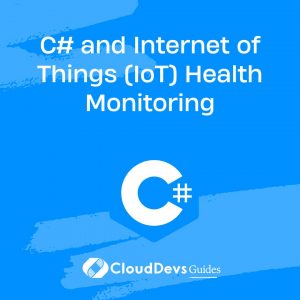How to use C# for blockchain & DApps
Table of Contents
The world of blockchain technology is rapidly evolving, and with it, the realm of decentralized applications (DApps). These applications, fundamentally different from traditional web apps, operate on a blockchain or peer-to-peer network of computers. A key component of DApps is smart contracts, self-executing contracts with the terms of the agreement between buyer and seller directly written into lines of code. In this blog, we delve into how C#, a powerful programming language, is making strides in the development of blockchain smart contracts and decentralized applications. You can hire C# developers for your projects to ensure greater success.

Table of Contents
1. The Rise of Blockchain and Smart Contracts
Blockchain technology, popularized by cryptocurrencies like Bitcoin and Ethereum, provides a decentralized ledger for secure and transparent transactions. Smart contracts, first introduced by Ethereum, are programs that run exactly as programmed without any possibility of downtime, censorship, fraud, or third-party interference.
Example: Ethereum’s Smart Contracts
Ethereum’s platform allows developers to write smart contracts using Solidity, a language specifically designed for blockchain. These contracts are used for a variety of purposes, including decentralized finance (DeFi) applications, voting systems, and automated supply chain management.
2. C# in Blockchain Development
C# is known for its simplicity, modern framework, and strong typing. These features make it an excellent choice for blockchain development.
Example: NEO Blockchain
Consider the NEO blockchain, which supports smart contracts written in C#. NEO’s framework simplifies blockchain programming, allowing developers to create smart contracts and DApps using familiar languages like C#.
3. Building Smart Contracts with C#
Developing smart contracts in C# involves several steps:
- Setting up the Development Environment: Tools like Visual Studio, .NET framework, and the NEO blockchain toolkit are essential.
- Writing the Smart Contract: Utilize C# to write the business logic of your contract.
- Testing and Deployment: Testing on test networks before deploying on the main network is crucial.
Example: Supply Chain Management
Imagine a supply chain application on the blockchain. A smart contract in C# could be used to automatically execute payments upon confirmation of goods delivery, recorded on the blockchain.
4. Challenges and Considerations
While C# offers many advantages, there are challenges:
– Scalability: Blockchain networks can face scalability issues as they grow.
– Security: Smart contracts are immutable, making security paramount. Thorough testing is essential.
5. The Future of Decentralized Applications with C#
The potential of C# in the blockchain space is significant. Its robust framework and widespread popularity among developers make it a promising tool for building sophisticated and secure DApps.
6. Case Study: Voting System
A decentralized voting system using C# smart contracts could ensure transparency and tamper-proof records, revolutionizing the way we think about electoral processes.
Conclusion
C# is carving a niche in the blockchain and smart contract development arena. Its ability to build secure, efficient, and scalable decentralized applications positions it as a formidable tool in the future of blockchain technology.
You can check out our other blog posts to learn more about C#. We bring you a complete guide titled An Introductory Guide to the Fundamentals of C# Programming along with the Leveraging the Power of Entity Framework for Efficient Database Operations in C# and Advanced C# Programming Techniques which will help you understand and gain more insight into the C# programming language.
Additional Resources:
- Blockchain Hub – Comprehensive resources on blockchain technology and smart contracts.
- C# Corner – A community for C# developers, including tutorials and articles on blockchain development.
- [NEO Documentation – Official documentation for the NEO blockchain, including guides on smart contract development with C#.



